The narrator returns to his small Southern hometown to attempt a reconciliation with his estranged father and to determine what to do about the remains of a lover, whose ashes he had secretly interred in the ancestral cemetery a year earlier.

The narrator returns to his small Southern hometown to attempt a reconciliation with his estranged father and to determine what to do about the remains of a lover, whose ashes he had secretly interred in the ancestral cemetery a year earlier.

When this novel's eager protagonist, Jerry Chiffon, dressed in a red ladies' suit and carrying a fake Chanel purse, tries to assassinate a right-wing United States senator in Branch Creek, North Carolina, he succeeds in putting the tiny town on the national map. Have You Heard introduces a host of inimitable characters with endearing foibles, not-so-endearing foibles, and closely held, destructive secrets.
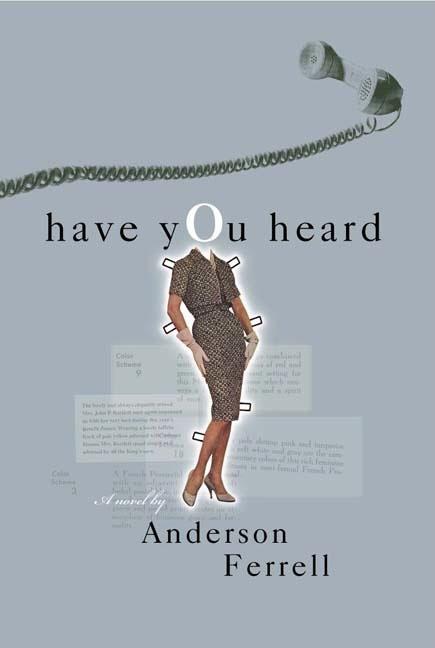
A new collection from a Whiting award and National Poetry Series winner. Thomas Lux has called Roger Fanning "an American original . . . [whose] poems are so pure, so piercing, so simple, so distilled that reading him is like taking a drunk-with-language dive into a moonlit lake on a night you believe you will live forever!"
Fanning writes surprising and evocative poems that are filled with humor and ingenuity; Mary Karr says he "tunes us in to those minuscule instants of revelation that can keep life from being a long zombie convention." This new collection of poems, Fanning's first in more than ten years, in part chronicles a period of time when he suffered a break with reality, and continues his investigations into the drudgeries, the disappointments, and the joy of our daily lives.
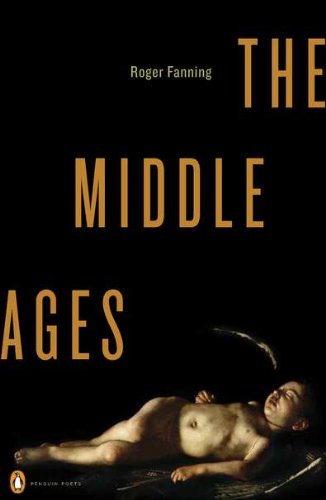
Roger Fanning is a junk magician. In Homesick, his second book, he repeatedly drains popular culture of its pop and fizz and transforms it into poems that are substantial, surprising, and evocative. In "Lord of the Jungle, Larva-Nude," Tarzan stands revealed as an adolescent, self-conscious about his lack of body hair. In "Besides Dracula's Castle a Black Pool"—a sly critique of capitalism's excess—Nosferatu becomes "a slender old bachelor with his hair slicked back." For all his humor and ingenuity, Fanning never loses touch with the ache that underlies our daily lives.
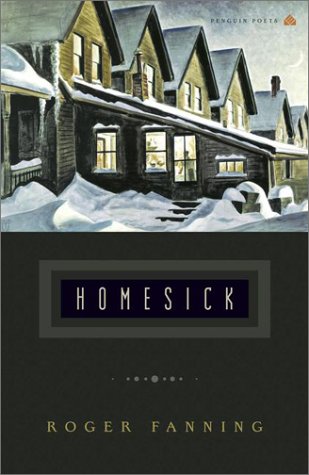
First published in 1993, The Virgin Suicides announced the arrival of a major new American novelist. In a quiet suburb of Detroit, the five Lisbon sisters—beautiful, eccentric, and obsessively watched by the neighborhood boys—commit suicide one by one over the course of a single year. As the boys observe them from afar, transfixed, they piece together the mystery of the family's fatal melancholy, in this hypnotic and unforgettable novel of adolescent love, disquiet, and death. Jeffrey Eugenides evokes the emotions of youth with haunting sensitivity and dark humor and creates a coming-of-age story unlike any of our time. Adapted into a critically acclaimed film by Sofia Coppola, The Virgin Suicides is a modern classic, a lyrical and timeless tale of sex and suicide that transforms and mythologizes suburban middle-American life.

This Pulitzer-prize winning novel is the astonishing tale of a gene passed down through three generations of a Greek-American family, finally flowering in the body of a teenage girl.
In the spring of 1974, Calliope Stephanides, a student at a girls' school in Grosse Pointe, finds herself drawn to a chain-smoking, strawberry blonde classmate with a gift for acting. The passion that furtively develops between them—along with Callie's failure to develop—leads Callie to suspect that she is not like other girls. In fact, she is not really a girl at all. The explanation for this shocking state of affairs takes us out of suburbia—back before the Detroit race riots of 1967, before the rise of the Motor City and Prohibition, to 1922, when the Turks sacked Smyrna and Callie's grandparents fled for their lives. Back to a tiny village in Asia Minor where two lovers, and one rare genetic mutation, set in motion the metamorphosis that will turn Callie into a being both mythical and perfectly real: a hermaphrodite. Spanning eight decades—and one unusually awkward adolescence—Jeffrey Eugenides's long-awaited second novel is a grand, utterly original fable of crossed bloodlines, the intricacies of gender, and the deep, untidy promptings of desire. It marks the fulfillment of a huge talent, named one of America's best young novelists by both Granta and The New Yorker.
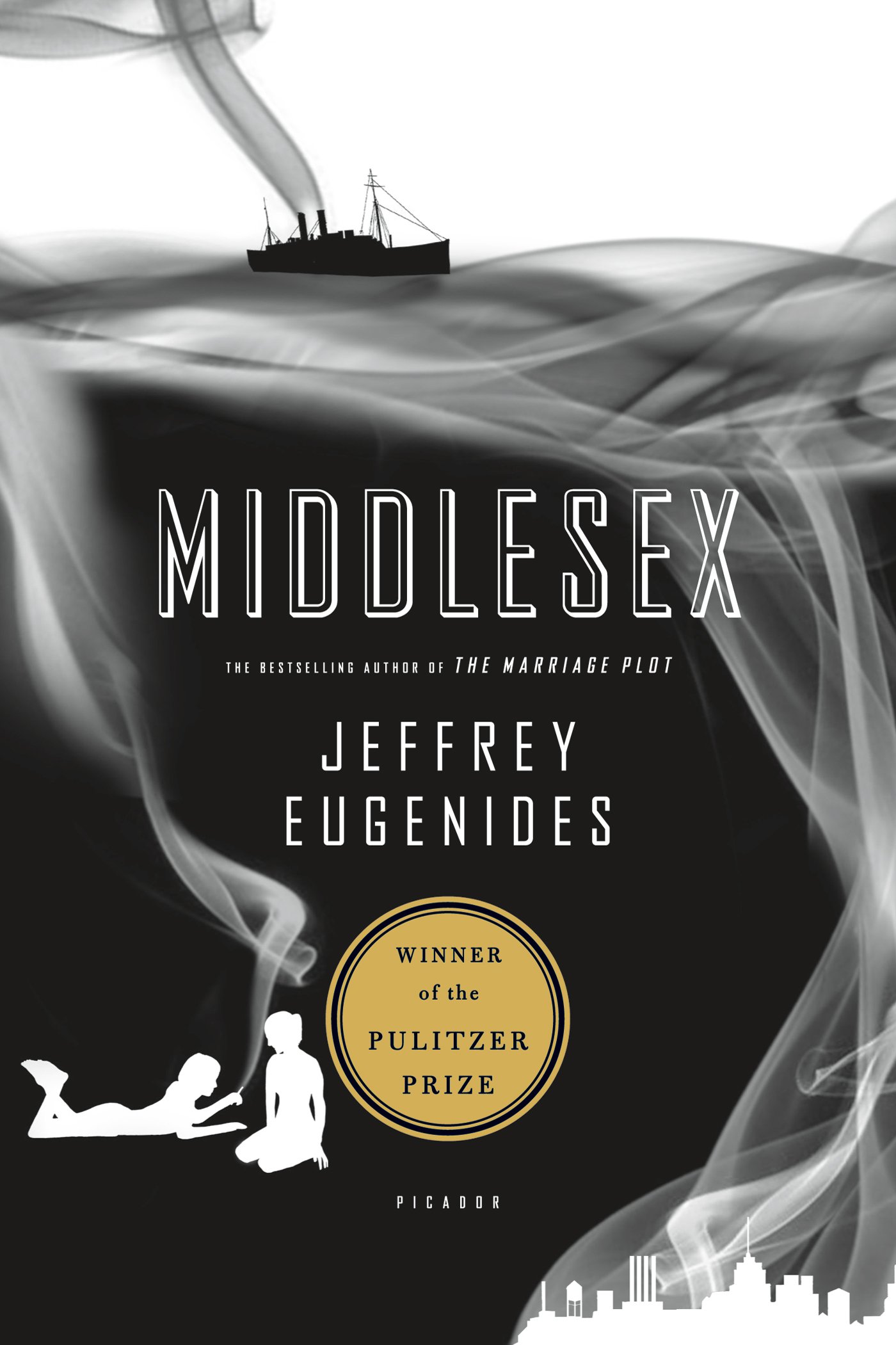
With its defiance for any one tradition or voice, Thomas Sayers Ellis’s debut becomes a powerful argument against monotony.
In one poem, Thomas Sayers Ellis prognosticates, “Pretty soon, the Age of the Talk Show / Will slip on a peel left in the avant- gutter.” The result is The Maverick Room, the testing ground of determination and serendipity, where call-and-response becomes Steinian echo becomes Post-Soul percussive pleasure becomes a bootlegged recording hustled out of a D.C. go-go club.
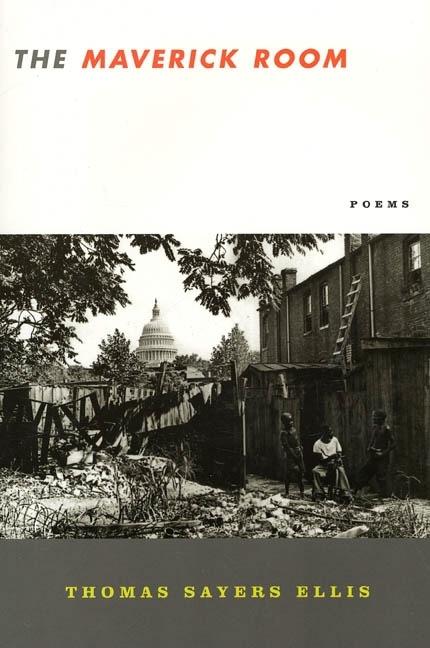
The brilliant and provocative second book of poems by Thomas Sayers Ellis. Skin, Inc. is Thomas Sayers Ellis's ambitious argument in sound and image for an America whose identity is in need of repair. In lyric sequences and with his own photographs, Ellis traverses the African-American and American literary landscapes and performs tributes for the Godfather of Soul, James Brown; the King of Pop, Michael Jackson; and the election of President Barack Obama. This book assures Ellis's place as one of the most audacious poets now writing.

Deborah Eisenberg is nearly unmatched in her mastery of the short-story form. Now, in her newest collection, she demonstrates once again her virtuosic abilities in precisely distilled, perfectly shaped studies of human connection and disconnection. From a group of friends whose luck in acquiring a luxurious Manhattan sublet turns to disaster as their balcony becomes a front-row seat to the catastrophe of 9/11; to the Roman holiday of a schoolteacher running away from the news of her ex-husband's life-threatening illness, and her unlikely guide, a titled art scout in desperate revolt against his circumstances and aging; to the too painful love of a brother for his schizophrenic sister, whose tragic life embitters him to the very idea of family, Eisenberg evokes "intense, abundant human lives" in which "everything that happens is out there waiting for you to come to it."
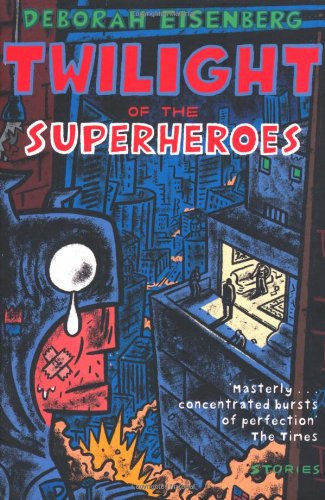
Since 1986 with the publication of her first story collection, Deborah Eisenberg has devoted herself to writing “exquisitely distilled stories” which “present an unusually distinctive portrait of contemporary American life” to quote the MacArthur Foundation. This one volume brings together Transactions in a Foreign Currency (1986), Under the 82nd Airborne (1992), All Around Atlantis (1997) and her most recent collection—Twilight of the Superheroes (2006).
